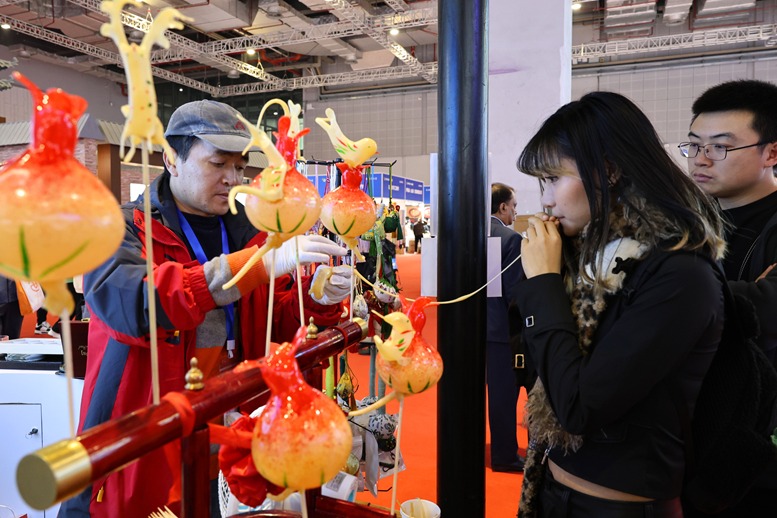Top executives weigh in at CIIE


A1: Dow is proud to have been a participant of the China International Import Expo in its inaugural year in 2018, and we remain a stalwart and dedicated contributor. For our company, CIIE is a critical component of our yearly plan, and we continue to expand the engagement. We increased the size of our booth from 100 square meters in the first year to 400 square meters in 2020 and 2021. And we have already signed up for the 2022 CIIE.
A2: The CIIE has clearly become a critical component of industry engagement and innovation, evidenced by the increasing number of companies attending, increases in exhibition space and long wait list for future sponsors. CIIE is a tangible example of the growth of the Chinese market, and expansion of Chinese production contributing over 30 percent to the world's annual growth. CIIE brings together industries to demonstrate the value of collaboration, promote innovation and demonstrate future market opportunities and growth.
A3: The increasing imports in China are the result of two strong forces working in parallel, the openness of the China market to support global value chains and upgrading domestic consumption propelled by more consumer preferences for eco-friendly, high-quality products. China has been able to preserve the supply chain and consumer power despite the pandemic, which will now be a critical contribution to restoring more global economic recovery and growth.
A4: China represents significant opportunity for the chemical industry, both to source and partner in the largest global manufacturing market, but also to drive innovation and growth in circular economy value chains, to support the national drive for more sustainable production.
Dow has been in China for many decades and we are constantly looking at how we can continue to make ourselves essential as the economy and societal expectations in China evolve over time. We do see urbanization continue and the mega transformation of China into a low-carbon society pick up speed in the coming decades, which request a materials company like Dow to strengthen our local capability of tailored innovation, market insight and customer intimacy.
A5: In the industrial segments where Dow operates, market access has been fully liberalized. There has been much more clarity and predictability in environmental, commercial and industrial regulations. We have also had positive experiences with IPR protection, the latest example being receiving a supportive ruling from the Chinese court system on a landmark trade secret arbitration result award case, which amounts to $116 million. That example demonstrates strong commitment to IPR enforcement but also reinforces the support and service provided to legitimate licensees. As the Chinese economy becomes more sophisticated and technology advances, we do expect the regulatory environment to change constantly. We would appreciate opportunities to have an ongoing dialogue with Chinese government agencies to share technical knowledge in order to support the most constructive enabling policy for new topics and concerns.
A6: The CIIE is a window to feel the strong beat of China's reform and opening-up. Dow started its presence in China in the 1930s and has achieved its exponential business expansion since China kicked off its reform and opening-up in the late 1970s, particularly in the last 15 years. Today, China is the second-largest market for Dow globally, and we are experiencing tremendous growth opportunities in China, as it is in its critical stage of consumption upgrade, urbanization and sustainable development. China has increasing demands for highly value-added materials science solutions where Dow has the right expertise.
A7: As the Chinese economy becomes more sophisticated and technology advances, we would appreciate opportunities to have an ongoing dialogue with Chinese government agencies to address new topics and concerns. Let's cross the river together.
A8: As a global company, Dow has been advocating for free and fair trade; transparent and harmonized science-based regulatory systems and efficient, risk-based digital policies that support innovation to reduce the burden of doing business to benefit the economy and people of the world.




































